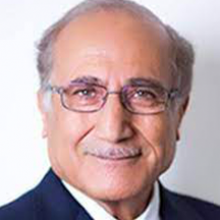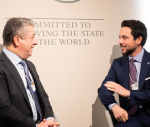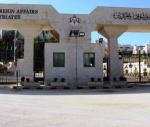You are here
An Islamic state in France
Aug 20,2018 - Last updated at Aug 20,2018
Today marks Eid Al Adha, when Muslims celebrate the performance of the Hajj pilgrimage, the fifth pillar of Islam. It comes twenty days before the start of a new year, according to the lunar calendar. It will mark the end of the 1439 Hijri year and the beginning of the year 1440, referring to the period since Prophet Mohammad migrated from Mecca to Al Medina in Hijaz.
On this occasion, I will talk about the novel “Submission” or “Soumission” in French, by the French novelist Michel Houellebecq. It is a “macabre coincidence” that the book was published on January 7, 2015, when the Charlie Hebdo shooting took place in Paris. Two brothers entered the Charlie Hebdo compound and killed twelve people and wounded eleven others in order to avenge, as the perpetrators claimed, the denigrating cartoons of Prophet Mohammad that Charlie Hebdo had published earlier and caused a tumultuous reaction in the Muslim world.
As a result, “Submission” caught the attention of the French, and subsequently, European and Western readers.
The novel is narrated by François, a 44-year-old professor, who decides to convert to Islam after a Muslim presidential candidate, backed by a fictional Muslim party and the socialists, is named France’s president and starts turning France into a sharia state.
This imaginary prospect touched deep into the fears of the Europeans at large, and the French in particular. Yet, some people began to look into reasons the author, Houellebecq, submits to rationalise such a story line. He believes that the family structure in the West is declining and being victimised by feminist ideas.
Such state of affairs, according to the author, would lead to inoperative dysfunctional society. Thus, the French need a new paradigm to salvage their society. Francois, the narrative’s hero, is convinced that Islamic masculinity is the answer. He finds that Islamic emphasis on family, the licence for men to marry four women, the paternalistic approach to rule and favouritism towards men are what these feminised societies need. Otherwise, they would in time wither and disappear because of lack of progeny.
Whether they believe in this theory or not, most readers only grasped the superficial message of the book, that France will be dominated by Muslims; a factor bolstering Islamophobia.
Yet, the deeper message that the masculinist author clearly sends is to caution against the expansion of women’s role and influence. The preference of companionship as an option for building families and the submission to same-sex marriages are not favoured by him.
He believes that Westerners’ accusation of Islam as being basically biased to males at the expense of females is the exact spirit Western societies need.
The book does not support Islam’s hegemony over France. Yet, with all the demographical statistics about Muslims and the predictions that Islam is going to eventually win the battle of the womb, the book sends a scary message.
The fact that Muslims are willing to kill and boycott those who attack the prophet only adds to that latent fear. But, after so many violent reactions to Danish cartoonists and American neocons burning the Koran, Charlie Hebdo should not be very surprising. In light of freedom of speech as understood even among the most liberal Muslims, the Koran and the prophet remain glowing red lines.













